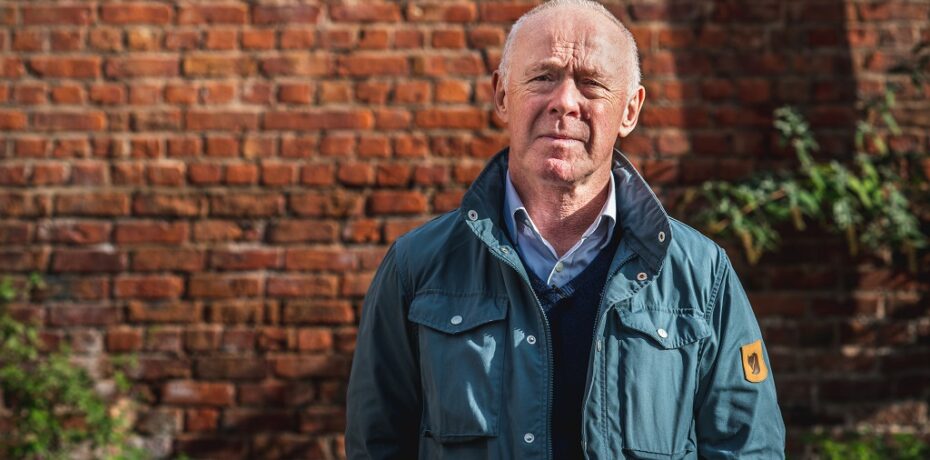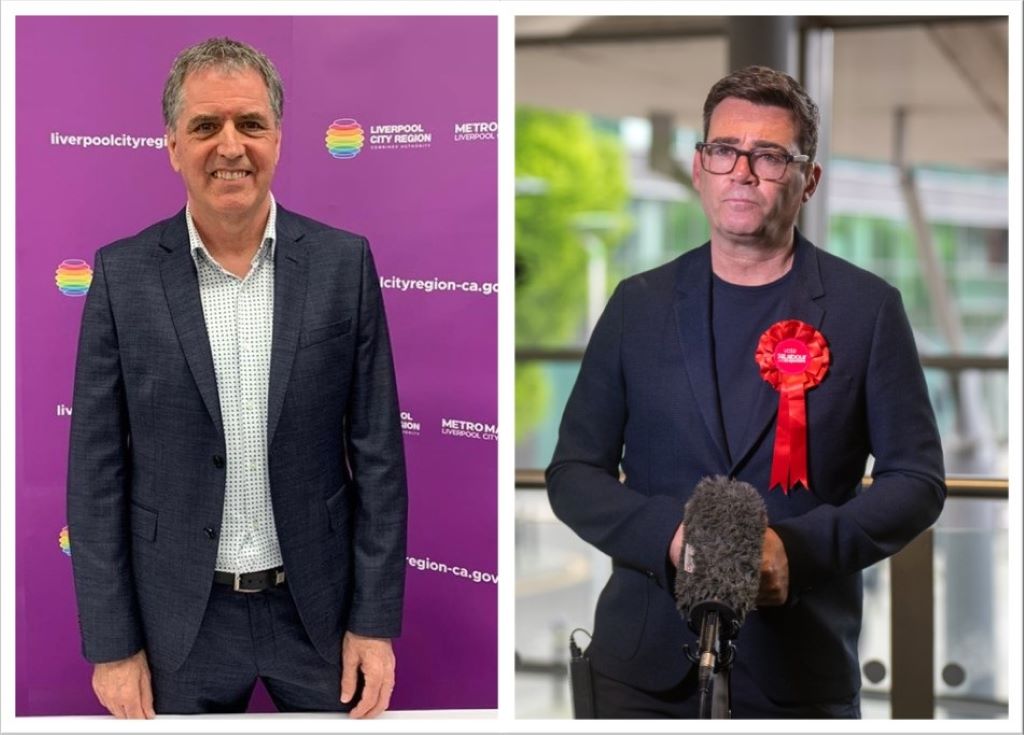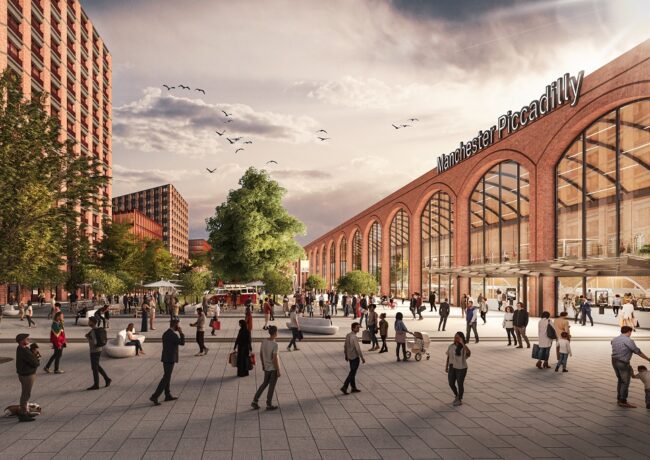Leese on Leese: Multi-party politics with Manc attitude
There are few people who can say they have changed the course of Manchester’s history, but that is undoubtedly what Sir Richard Leese has done. Over the past 25 years as city council leader, Leese has overseen the city’s recovery from the economic decline it suffered for decades before the 1990s.
Under his leadership, the population has grown by nearly 22%, the city’s gross value per head nearly doubled and the city’s housing market is thriving. A recent report from Urbanbubble revealed that only 427 apartments were available in October in the central part of the city, the lowest number on record. Rents for studio, two- and three-bedroom apartments were also at record highs.
Leese earned a knighthood for his work growing the city, along with ex-chief executive Sir Howard Bernstein. The pair led the regeneration efforts of East Manchester. They built up the city’s cultural reputation, establishing the Manchester International Festival. Just two examples from a wide-ranging legacy that will be debated for years to come.
“Manchester is a far better place to live now than it was 25 years ago,” Leese told Place North West during a one-on-one interview earlier this month.
“It is undoubtedly a city that has been transformed,” he continued. “It’s a city now that people want to live in – choose to live in.”
Leese’s last full day in office is today. Cllr Bev Craig is due to take over as Manchester City Council leader during full council meeting tomorrow morning, Wednesday 1 December.
Place asked him to walk us through pivotal points in his political career, from the IRA bomb at the beginning of his time as leader to regional devolution.
Throughout our conversation, one thing becomes clear. Key to Leese’s success has been having a vision and being able to convince others to buy into it – even if they are not a member of the same political party.
Working with others
One of the early political lessons Leese learned was to be able to play nicely with others.
When he first joined the council in 1984, the administration at the time did not hesitate to pick a fight with the Conservative government over policies surrounding rate-capping.
“We believed that we could take on the Tory government and win,” Leese recalled.
“What changed was we found that we couldn’t. That national government is more powerful than local government,” he continued.
When Labour lost the 1987 general election, it was time for a strategic rethink.
“We were very idealistic, which is actually a good thing,” Leese said. “But what we had to learn to do was to marry that idealism with actually making a difference and getting things done.
“It took us a few years to do that,” he continued. “Ultimately, we did do that and that’s when we started to make a real difference.”
It became clear that if Manchester was going to grow, the council, led then by Leese’s predecessor Graham Stringer, had to tackle deprivation and create new and better jobs in the city.
“Given that the council and other public services were being cut to ribbons, we weren’t going to do that,” Leese recalled. “We had to work with the people who could do that. So that was the private sector.”
Working with the private sector did not mean working with just anyone. Leese maintains that his administration only wanted to do business with developers who shared the council’s values. In fact, Leese said that 30% of the assessment of potential partners was dedicated to that.
“A lot of the developers that we work with now take social value seriously, they take EDI [equality, diversity and inclusion] seriously,” Leese said. “They do local recruitment, have local supply chains, provide a real living wage. Those are the people we want to work with.”
Political division
Leese’s willingness to work with the private sector has had its repercussions. In October, Leese had a glass of wine thrown at him at a Conservative Party Conference fringe event by a protester yelling that Leese had “sold off” the city.
“That criticism comes from a really tiny minority of unrepresentative people,” Leese said. “I wouldn’t go too far and say I don’t care what they think, but what they think isn’t really very important.”
Nevertheless, such protests do speak to a growing trend Leese has spotted in politics of growing animosity between those who have differing political beliefs.
“The ideologues who effectively think politics is that they’re right and because they’re right, they ought to be able to impose what they think on other people, is something I will just entirely reject,” Leese said.
“Now, I have strong views,” he continued. “I can’t do what I do if I don’t have strong views. I will argue those views. I’ll try and do things on the basis of what I believe. But I also recognise that there are lots of people who believe different things.
“While this is a little bit hard, I might even accept that I’m not always right, as well.”
Which brought us to the Transport Innovation Fund.
Congestion charge
Leese has experienced his share of political losses – notably the failed bid of the Greater Manchester Transport Innovation Fund, an initiative he campaigned for that would have secured £3bn in investment for the city. The bid’s downfall was its inclusion of a weekday, peak-time only congestion charge.
The GMTIF plan was overwhelmingly voted down in a referendum in December 2008.
“Clearly, this is an area where I think what we were trying to do was the right thing to do,” Leese said. “We didn’t convince people. That’s politics.”
There was a positive aspect to the loss, though. Having taken GMTIF up to Green Book standard, the strict evaluation guidance set by Treasury, Leese’s administration could easily pivot and submit parts of it for other government funding opportunities. So, when recession hit in 2008, Manchester was primed to be able to send in parts of the plan to get fiscal stimulus.
“That’s how we managed to get all of the Metrolink lines that we planned built,” Leese said. “If we had not gone the full journey on the Transport Innovation Fund, we would not have been able to do that.
“While in one sense it was a failure, it was a glorious failure because we got something out of it.”
Listen to a podcast of the interview
The bomb
Leese’s time in Manchester will be remembered for the way it changed the city.
The IRA bomb outside the Arndale Centre played a large role in that, even if Leese maintains that the suggestion that there was anything to celebrate about the bomb is wrong.
“The idea that in any way the bomb was a good thing for Manchester is just nonsense,” he said, referencing the businesses destroyed, more than 200 people injured and countless others still traumatised by the event.
It became though a defining moment for Manchester. The bomb caused an estimated £700m in damages, destroying 500,000 sq ft of office and retail space. And it presented opportunity.
According to Leese, the city was already well on its regeneration track before the bomb expedited things in 1996. This was thanks to the galvanising effect of public-private initiatives such as the bid in 1993 to host the 2000 Olympics, even though the city lost out to Sydney. Manchester swiftly made up for the defeat by hosting a successful Commonwealth Games in 2002. As the deputy leader before the bomb and the former chair of the council’s finance committee, Leese was actively involved in those early regeneration discussions.
Having that background allowed Manchester to move quickly, and so did the council’s relationship with the private sector.
“We had a completely a unified partnership between the council and business,” Leese said. “So when we were talking to the Conservative government, we were really speaking with one voice.”
That allowed the city to get the £90m it needed to rebuild better from the bomb, opening up the middle of the city, bringing in new roads and creating Cathedral Gardens, a new-look Arndale and more.
“The city probably looks physically different because we were able to grab those opportunities,” Leese admitted. “But would we have had a successful regeneration story in the city [without the bomb]? I think we would have done that.”
Northern Powerhouse
Devolution and models of metropolitan governance had been on Leese’s radar for “quite a while” before becoming reality, Leese explained. He was particularly interested in French metropolitan governments, which inspired much of what the Greater Manchester Combined Authority eventually became. In the French system, the representatives are the leaders of the individual communities that make up the authority, rather than a separately elected tier.
In 2006, Leese, together with Association of Greater Manchester Authorities chair Lord Peter Smith and leader of Trafford Council Cllr Susan Williams spoke with communities minister David Miliband. They pled their case for economic devolution and argued for a new statutory body. That would eventually become the combined authority.
That first devolution deal, which created the combined authority, was passed under the Labour government. Then the Coalition took power in 2010. All could have been lost at that point, if it had not been for the fact Greater Manchester had three Liberal Democrat and two Conservative leaders at the time.
“When the Coalition government came in, the Conservative and Liberal Democrat councils lobbied what was then their government to say, actually, we want this,” Leese recalled.
“I think if we hadn’t been multi-party at that time, it never would have happened,” he said. “In some ways if that hadn’t happened, devolution as we know it in England would not have happened, either.
“So, our willingness to work not just across geographies, but across parties, has enabled us to transform the world of local governance in this country.”
A common theme throughout our discussion is collaboration across party lines. When Leese wanted something, he knew how to approach the government, even if it was formed by the opposing party.
“One thing we’ve learned over many years – and this is true for any government – is, while generally speaking, they start off working with the people they feel more comfortable with, they always end up working with the people who deliver.
“So, we demonstrated capacity to deliver.”
That capacity to deliver and the city’s own ambition made an impression on chancellor George Osborne and led to the Northern Powerhouse slogan that dominated political speeches in the late 2010s. That movement reinforced devolution, with metro mayors and further combined authorities governing parts of the North and £70bn investment in regional transit via Transport for the North.
“We gave the substance if you like. We gave the ideas,” Leese said. “And that’s how it worked. [Osborne] was prepared to work with us because we had ideas and we could deliver those ideas as well.
After years of partnership, it is clear that Leese formed a mutual respect with the former chancellor.
“I think there was actually a large amount of genuineness to George Osborne,” he said.
Mayor of Greater Manchester
But Osborne’s favour came with strings attached. To secure devolution – particularly the transport reform components – Osborne demanded the plans include a London-style mayor.
Leese said that he and others fought back, arguing instead for what Leese called a ‘Manchester mayor,’ which would have different powers than the Mayor of London.
A deal was made.
“I regularly remind Andy Burnham that the only reason he’s here is because of bus reform,” Leese said with a smile. “That’s what he’s here to do. Because that was the deal we struck with George Osborne.”
Much has been reported about alleged squabbles between Leese and Burnham, but Leese stands by the decision to create the Mayor of Greater Manchester position.
“I felt we needed somebody who would be effectively a full-time politician to provide the leadership on that metropolitan agenda,” Leese said. “I think it’s the right thing to do.”
He was quick to point out that GM has only had a mayor for four years.
“This is an immature system,” Leese said. “It’s still developing and growing.
“I think it will increasingly be demonstrated to actually be an appropriate form of governance for certainly our major metropolitan areas.”
Is Leese proud of the work he did with devolution?
“Well, I guess it’s not the most exciting thing in politics to have designed a new governance system,” he said. “But it is, probably, in some respects, one of the most significant things I’ve done over the last 15 years.”
Looking forward
Leese may be leaving the city council, but he will not be disappearing from Manchester. His next role will be to chair the Integrated Care Board, a newly formed organisation that will tackle running the NHS operations in Greater Manchester.
When talking to Leese, it is clear he is passionate about healthcare and eager to sink his teeth into his new role. He does not appear to be worried about what his successor might do in the city council.
In fact, he knows what Cllr Craig does will be different – that’s as it should be, he said. He is confident, though, that he has set the city on the right path.
“This is a city that’s got its self-confidence back,” Leese said. “It’s got its attitude back. It believes it can do things.”
And, according to Leese, “cities that believe they can do things, do things”.
Read more





Noticeable that Manchester`s fortunes changed from about 1997 when the Labour Government came in and Blair wanted some quick wins maybe , fortunately Manchester was Labour controlled and easy to do business with and the rest is history.
Unfortunately for Liverpool they were soon to be controlled by the Liberals, and this remained so for over 10 years, slim chance therefore of getting any favours from Labour nationally that would only help the Liberals locally.
So Richard Leese was in the right place at the right time, and he hasn`t looked back.
By Anonymous
Doubling gross per head over 25 years is 3% growth per annum compounded after dips and troughs of boom and bust cancel each other out over the medium/long term. 22% increase in population over 25 years is 0.75% growth per annum. Not bad but not the superlative growth you are trying to imply. Figures mean nothing without context. However Manchester has been a strong performer under Sir Richard’s (and Sir Howard’s) tenure. The new leader has a lot to live up to and experience WILL matter. A little concerned at the moment. Let’s see where we are this time next year. Lockdowns aside.
By Anonymous
It’s sad that in Hatmaker’s excellent interview with Leece, he failed to mention the huge and significant contribution Bernstein and Stringer (plus a load of others) made to the city in its recovery from the bomb.
By Old Hack
Yeh but Liverpool has bounced back – lets see how Liverpool has changed in the next 5-10 years – it’s looking pretty good at the moment.
By Anonymous
Nonsense @Anon.
Manchester’s fortunes didn’t change over night in 1997. There was a culture of extremely successful public-private partnerships stretching back into the 80s and early 90s with major projects in Castlefield, Hulme City Challenge, Manchester airport, Metrolink and the various Olympic bids.
Manchester, the city council and its private sector have simply fostered an extremely effective political culture and and culture of collaboration. We’re a city of pragmatists that gets things done. We’ve also benefitted from agglomeration economies both within the Greater Manchester City Region and the wider north thanks to geography and the legacy of decent canal, road and rail connections that make Manchester a convenient location for people and businesses to meet.
It is to Leese’s great credit that he’s fostered the positive culture that’s driven Manchester’s transformation over the last 40 years.
By Anon 2